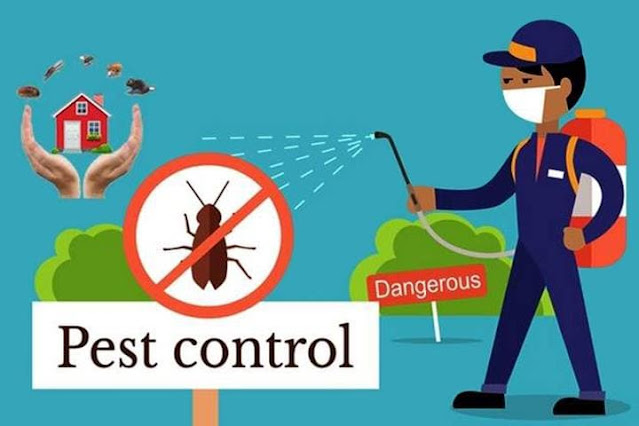Home is where the heart is, but it can also be a haven for unwelcome guests – pests. From ants to rodents, these tiny invaders can disrupt the tranquility of our living spaces. In this article, we'll explore effective home pest control tips that are not only practical but also eco-friendly.
Common Household Pests: Our homes can play host to a variety of pests, each with its unique challenges. From the common housefly to termites silently causing structural damage, understanding the types of pests is crucial for effective control. Health risks and property damage are compelling reasons to tackle pest issues promptly.
Signs of Pest Infestation: Early detection is key to successful professional pest control. Recognizing the signs of infestation, such as droppings, chewed items, or unusual pet behavior, can help homeowners take swift action. Timely intervention prevents minor issues from turning into full-blown infestations.
DIY Pest Prevention: Prevention is better than cure, and this holds true for pest control. Simple practices like keeping food sealed, fixing leaks promptly, and maintaining a clutter-free environment can go a long way in preventing pests from establishing a foothold in your home.
Natural Pest Repellents: For those who prefer natural solutions, various household items can be used to repel pests. Citrus peels, vinegar, and essential oils can act as deterrents without harming the environment or your family.
Effective Cleaning Practices: A clean home is less appealing to pests. Regular cleaning, especially in areas prone to moisture and food particles, is essential. Paying attention to neglected spaces like basements and attics is equally crucial.
Sealing Entry Points: Pests can find their way into homes through tiny openings. Inspecting and sealing entry points, such as cracks and gaps, can significantly reduce the chances of infestation.
Proper Waste Management: Garbage can be a magnet for pests. Implementing proper waste management practices, including using sealed bins and disposing of garbage regularly, helps create an environment that is less attractive to pests.
Home Remedies for Pest Control: Several do-it-yourself remedies can address specific pest issues. From using diatomaceous earth for crawling insects to deploying natural predators like ladybugs in gardens, these remedies provide effective and eco-friendly solutions.
Professional Pest Control Services: When DIY methods fall short, it's time to call in the professionals. Pest control experts have the knowledge and tools to tackle even the most stubborn infestations, ensuring a pest-free home.
Choosing Safe Pesticides: For situations that require pesticide use, selecting safe options is crucial. Reading labels carefully, following instructions, and choosing products with minimal environmental impact are essential considerations.
Seasonal Pest Control Strategies: Pest challenges vary with the seasons. Adapting control strategies to changes in weather and pest behavior is essential for maintaining a pest-free home throughout the year.
Maintaining a Pest-Free Garden: Gardens can be vulnerable to pests, impacting both plants and the surrounding home. Balancing the health of your garden with pest control measures is key to a thriving outdoor space.
Pet-Friendly Pest Control: Pet owners need to be cautious about the methods they use for pest control. Opting for pet-friendly repellents and treatments ensures that furry family members remain safe while addressing pest issues.
Conclusion: Effective home pest control is a combination of proactive measures, natural remedies, and, when necessary, professional intervention. By adopting these tips and incorporating them into your routine, you can create a pest-resistant environment, ensuring the comfort and safety of your home.
FAQs
Are natural pest control methods as effective as chemical solutions?
- Natural methods can be highly effective for preventing and managing pest issues, though the extent of effectiveness may vary based on the specific pest and situation.
How often should I conduct pest inspections at home?
- Regular inspections, at least once every season, can help detect and address pest issues before they escalate.
Is professional pest control safe for children and pets?
- Reputable pest control services prioritize safety and use methods that are safe for children and pets when applied correctly.
What are the signs of a termite infestation, and how can I address it?
- Signs include damaged wood, discarded wings, and mud tubes. Professional assistance is crucial for effective termite control.
Can I use essential oils to repel pests in my garden?
- Yes, certain essential oils can be effective in repelling pests in gardens. Dilute them properly and apply as directed.



